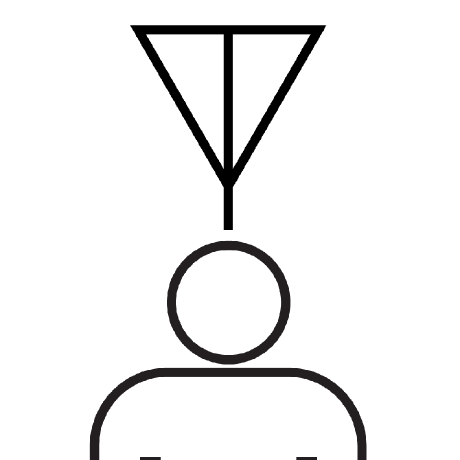Miner Release: Flatline Fix and Prepare to Disable Chain Sync
The core developers have tagged a new 2022.06.09.0 miner release. This release contains fixes to
the packet issue identified in the last release by bumping the gateway-rs version to alpha-27,
fixes a crash in ebus (more on this below), and a "flatline" fix (more on this below).
- Makers must enable mux explicitly in their docker overlay by adding
{gateway_and_mux_enable, true}to your configuration file under the miner application block
Summary of Flatline and Ebus fixes
These two issues have been causing various crashes and out of memory errors on Hotspots that have been preventing them from participating in network and potentially causing "flatline" reports in the community.
More details are below but the team has identified an issue where Hotspots were talking to both the Mainnet and Testnet causing a Hotspot to run out of memory. Additionally, a Hotspot can crash due to a latent bug in the bluetooth stack. Both of these issues have been fixed.
Ebus Crash
The network is in the middle of transitioning from Full (chain syncing Hotspots running Erlang-based miners) Hotspots to Light (no chain sync, running a rust-based gateway) Hotspots. In this middle period, the Hotspot itself uses both erlang-based and rust-based components. The core team chose to transition this way to avoid disruptions and ease the transition over a period of time. One of the components that needs to transition over is called "ebus".
What is ebus?
ebus is used to communicate to Manufacturer Hotspot mobile applications over Bluetooth to run diagnostics and perform the initial onboarding. During onboarding and running diagnostic reports, ebus asks for the Hotspot's block height so it can return that information (over Bluetooth) back to the user.
Explaining the problem
Before Light Hotspots, ebus would ask the erlang-based miner what the block height is and it would return that information. However, now that Hotspots get their chain information from Validators using a protocol called gRPC, ebus (still talking to the erlang-based miner) thinks there is no block height at all, and crashes.
The fix is to tell ebus to talk to the Validator using the new rust-based gateway using gRPC.
"Flatline" Fix
The core team had been chasing down the flatline fix for a while and we're optimistic that this will resolve the issue.
Some background on Seed Nodes and Peerbooks
All Hotspots, when they first boot up and connect to the internet, connect to a seed node (think of it like a directory of all Hotspots and Validators on the network). These seed nodes share a peer book that provide routing information for the Hotspots (like directions to a store).
There are both Testnet seed nodes and Mainnet seed nodes that exist, providing peer book information to whichever Hotspot requests it.
Explaining the problem
When Hotspots participate in Proof-of-Coverage, they often need to look up where to send the receipt, so they ask a seed node. The problem arises when both Testnet and Mainnet seed nodes respond.
Some Hotspots are unable to untangle the mix of seed nodes responding back to them, filling up their memory, and completely exhausting any available memory they have, causing a "flatline".
The fix is to separate out the crosstalk and ensure only Mainnet seed nodes respond to a Mainnet Hotspot.
For a more technical explanation, see "Flatline: Detailed Discussion".
Related PRs
#1390 Prevent Testnet and Mainnet crosstalk
that caused, on boot, the Hotspot miner to think its peer book database is in a legacy byte order
state and needs to be reconverted to reversed byte order.
#439 Fixes bug that caused memory issues in
peerbook #1381 Fixes Poc Targeting and
Filtering #1723 Fixes an ebus crash on miner as it
tries to get block_height and other ledger-related params.
Plan
We have been testing 2022.06.09.0 on Mainnet since June 9 3pm PT. Current ETA for GA is June 10,
2022 12:00pm PT.
"Flatline": Detailed Discussion
To participate in the network effectively, Hotspots must communicate with any one of several Validators for various services. But to do so, the Hotspot must first obtain a directory listing, also called a peer book, of all available Validators and Hotspots on the network. It obtains the most up-to-date peer book by contacting any other Hotspot or Validator and asking for one. If a Hotspot doesn't have any directory listing to begin with, it will contact any one of several special Seed Nodes to download one. Once downloaded, a Hotspot will save its peer book to disk so that it can avoid having to ask for a full peer book from a seed on reboot. As the Hotspot hears about changes to the peer book it will update its local copy to keep it in sync.
The format of the peer book disk database underwent a change long ago, and to accomodate that change, Hotspots first attempt to check whether the peer book appears to be in the older or newer format at start up. If the Hotspot believes its database format is of the older version, it attempts to correct the database at start up by completely rewriting it. When this "upgrade" code was written the peer book was so small that it could effectively have been loaded entirely into memory first before being corrected. Nowadays, however, the database is so large that when the "upgrade" code runs it exhausts all memory on the Hotspot, causing it to crash. Fortunately, the upgrade code hasn't been needed for quite some time, so it rarely runs, and rarely causes the crash.
Unfortunately, however, the upgrade code can be activated accidentally if there are unusual peer book entries in the database. Some hotspots have unfortunately started collecting unusual entries in their peer books due to a couple of additional problems that had been occuring with Seed Nodes, one of which is that they had been delivering peer books filled with both mainnet and testnet Validator and Hotspot addresses. Once a Hotspot receives and stores these unusual peer book entries, it can get in a state such that it continuously tries to "upgrade" its peer book, over and over, at startup. Since the upgrade itself causes a crash, the Hotspot cannot get itself out of this loop (in the affected versions).
The solution to the issue is several fold.
- Remove the "upgrade" code altogether. It simply isn't needed.
- Prevent Seed Nodes from accumulating and propagating listings for peers outside their network type (testnet vs mainnet).
- Prevent Seed Nodes from accumulating and propogating empty peer book listings.


